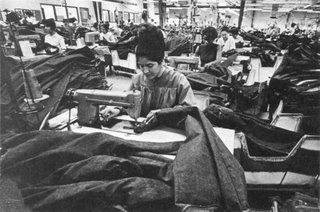beauty that money can't buy
 Michael Ventura looks at artists at their day jobs and wonders who's been lying to the children.
Michael Ventura looks at artists at their day jobs and wonders who's been lying to the children.
Novelists make a living if they write something popular, which usually means confining oneself to a genre – crime, say, or sci-fi. I know superb novelists who can boast fine reviews from prestigious publications, novelists who've been translated into several languages, but they've rarely earned a year's livelihood from one book – and novels often take years to write. Famous novelists, from Nathaniel Hawthorne to William Faulkner, have had to supplement their incomes with other jobs. James Joyce lived off-the-cuff until given a stipend from some arts-loving rich person. D.H. Lawrence was poor all his short life. Willa Cather was a journalist and magazine editor until her early 40s. Henry Miller lived in obscurity, scrounging for money, until his sexually free books were finally published in America when he was 70. Faulkner worked in factories, then wrote screenplays. F. Scott Fitzgerald and Jack Kerouac had great success with their early novels but died broke in their 40s with most of their books out of print.
Regardless of the reality of having to work a day job, it doesn't stop the soul sucking that often accompanies a steady paycheck. Kafka seemed to know this too well, as seen in a February 1911 excerpt from his diary.
When I tried to get out of bed today, I simply folded up. There’s a very simple reason for this, I am completely overworked. Not by the office but by my other work. The office has an innocent share in it only in that if I did not have to go there, I could live calmly for my work and would not have to spend six hours there daily, which especially on Friday and Saturday afflicted me to a degree you can’t imagine, since I was full of my own affairs. In the end I know perfectly well that these are empty words, that I am guilty and that the office has the clearest and most justified claims against me. But for me in particular it is a terrible double life, from which there is no way out but madness. I write this in good morning light and surely would not write it if it were not so true, and if I did not love you like a son. For the rest, tomorrow I will surely be together again and will go to the office, where the first thing I hear will be that you want me out of your division.
